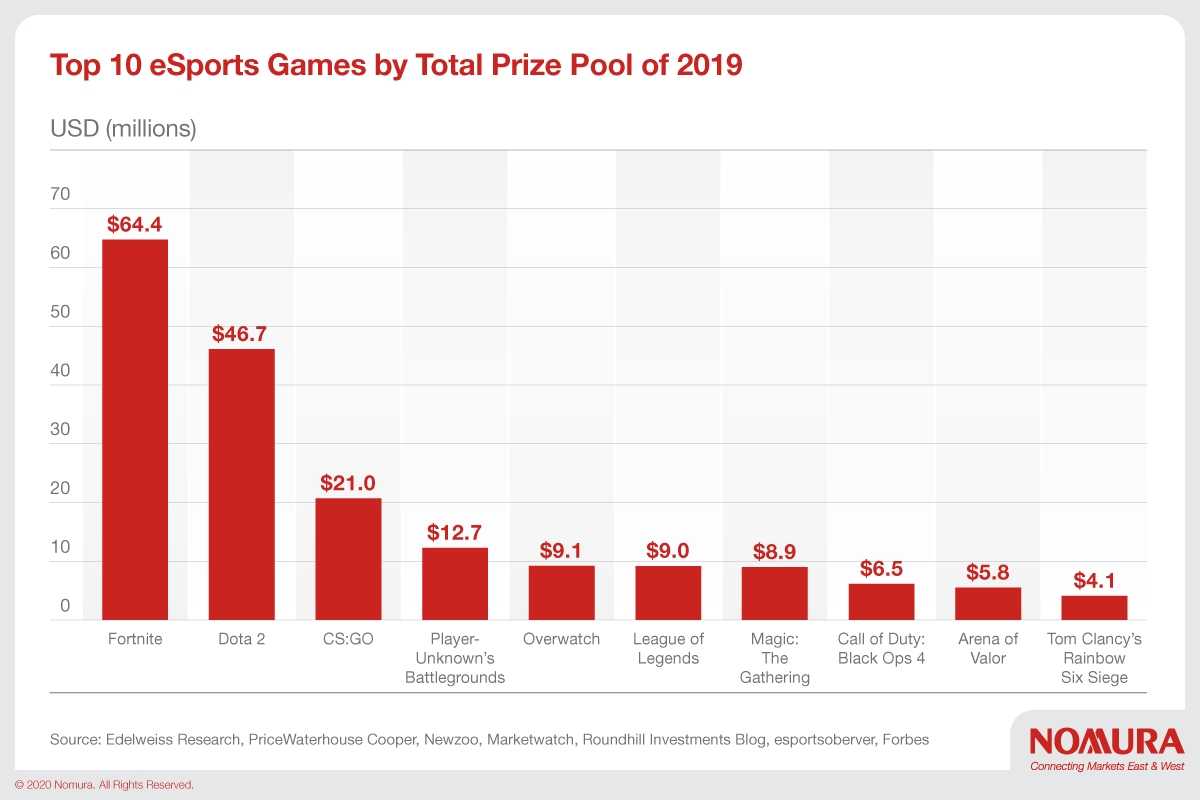Electronic sports or eSports has transformed from a niche industry player to a major disruptor to the traditional sports and entertainment industry in the past several years. Industry insiders and consumers alike are witnessing eSports penetration into mainstream culture and growing audiences alongside investment spend. While eSports, organized multiplayer video game competitions, has been around in some form for almost two decades, it only began gaining traction recently as significant improvements in gameplay, interactive gaming and organizational play have emerged.
Many adults dismiss the phenomenon as a generational interest as today’s youth seem infatuated with watching videos of other gamers playing against each other – this concept is more difficult to grasp for older generations. Although eSports has achieved staggering numbers of unique viewership (500mm+ worldwide in 2020E) and successfully filled many stadiums with its events, it hardly received credit for being a “sport” by traditional media outlets. However that narrative is changing as eSports are widely becoming accepted as a “sport” by mainstream media, especially as it continues to operate and broadcast competitions while traditional sports leagues are suspended amid the COVID-19 pandemic.
Indeed, sports starved fans are actively seeking new ways to watch their heroes compete or ways to satisfy their own competitive itch. ESPN began broadcasting live events where celebrity athletes play each other in video games. Sports fans who previously dismissed eSports as just video games are now finding themselves challenging their friends in various eSports competitions.
Indeed, the eSports ecosystem and related industries such as game publishers, streaming platforms, chip makers, graphic cards producers and others, is expected to grow even after the current pandemic we are experiencing passes. We expect an increase in partnerships between the entertainment industry and eSports as media companies will look to monetize the increasing viewership in eSports.
The current COVID-19 crisis may even lead to a more permanent role for eSports in many people’s lives as it continues to develop more structure and incentives for participation. Media companies and brands have certainly taken notice of this highly engaged audience and consumers. eSports should be an exciting growth industry across the globe as more capital is invested and the youth from the United States, Japan and other countries continue to embrace and support it.
Source: Edelweiss Research, PriceWaterhouse Cooper, Newzoo, Marketwatch, Roundhill Investments Blog, esportsoberver, Forbes
Disclaimer
This content has been prepared by Nomura solely for information purposes, and is not an offer to buy or sell or provide (as the case may be) or a solicitation of an offer to buy or sell or enter into any agreement with respect to any security, product, service (including but not limited to investment advisory services) or investment. The opinions expressed in the content do not constitute investment advice and independent advice should be sought where appropriate.The content contains general information only and does not take into account the individual objectives, financial situation or needs of a person. All information, opinions and estimates expressed in the content are current as of the date of publication, are subject to change without notice, and may become outdated over time. To the extent that any materials or investment services on or referred to in the content are construed to be regulated activities under the local laws of any jurisdiction and are made available to persons resident in such jurisdiction, they shall only be made available through appropriately licenced Nomura entities in that jurisdiction or otherwise through Nomura entities that are exempt from applicable licensing and regulatory requirements in that jurisdiction. For more information please go to https://www.nomuraholdings.com/policy/terms.html.





